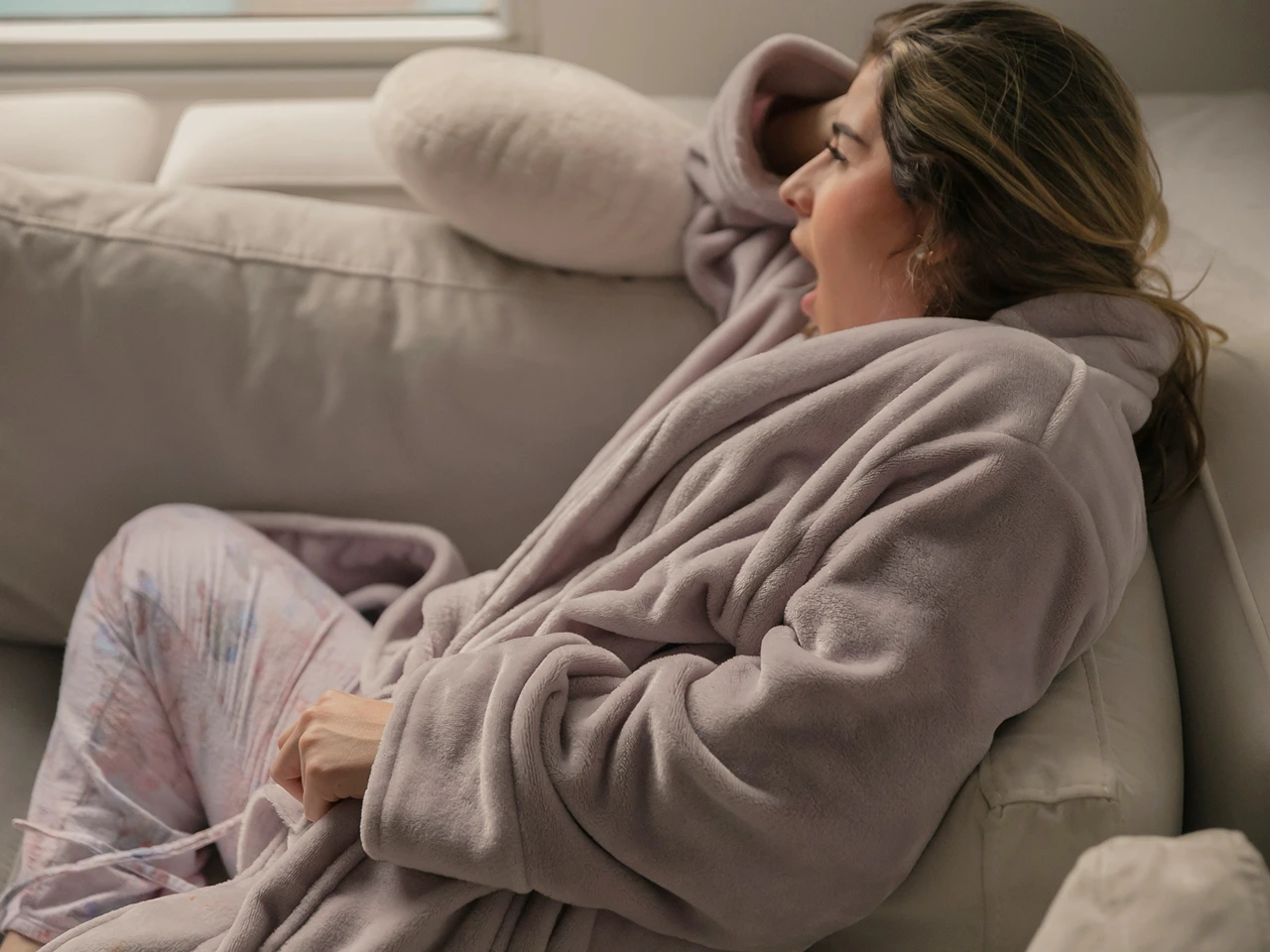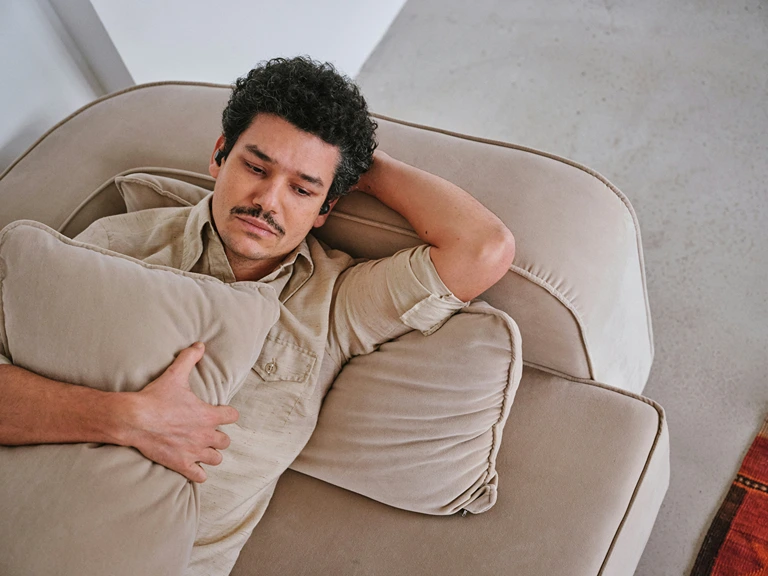
Does Coffee Make You Sleepy? The Relationship Between Caffeine and ADHD
Does coffee make you feel tired? Learn why caffeine can sometimes make people with ADHD feel sleepy and what it reveals about the ADHD brain.

Many people with ADHD often wonder why drinking coffee or tea sometimes seems to calm them down—or even make them tired—instead of alert. The connection between caffeine and ADHD helps make sense of these reactions. Caffeine works as a stimulant that influences dopamine, the brain chemical that plays a big role in focus, motivation, and alertness.
However, because ADHD already involves dopamine regulation differences, caffeine’s impact can vary widely, sometimes increasing focus and energy, and other times leading to fatigue or relaxation instead. In this blog, we’ll explore the effect of caffeine, how it interacts with the ADHD brain, and why caffeine may help some individuals while making others feel sleepy.
What is ADHD?

Attention Deficit Hyperactivity Disorder (ADHD) is a neurodevelopmental condition that affects how a person manages attention, activity levels, and impulses. People diagnosed with ADHD often find it challenging to stay focused, organized, or still for long periods—especially in situations that require sustained attention. To be diagnosed with ADHD, symptoms need to appear before the age of 12 and cause noticeable difficulties in everyday life across different settings—such as home, work, or school.
Types of ADHD
There are three main types of ADHD, each showing up in slightly different ways:
- Inattentive Type: This type mainly involves trouble staying focused, following instructions, or keeping things organized. Someone might seem forgetful or easily distracted, not because they’re careless, but because their mind often drifts to something else.
- Hyperactive-Impulsive Type: People with this type tend to feel constantly “on the go.” They might talk a lot, interrupt others, or act before thinking. Sitting still or waiting their turn can feel almost impossible at times.
- Combined Type: As the name suggests, this is a mix of both inattentive and hyperactive-impulsive symptoms. Those diagnosed with ADHD of this type often struggle with both focus and impulse control, making everyday routines a bit more challenging to manage.
While children with ADHD are often more visible due to classroom challenges, the condition persists into adulthood for many. Studies show that caffeine and other stimulants like caffeine interact differently with the central nervous system in adults and children with ADHD, influencing focus and attention in unique ways.
The ADHD brain typically shows irregularities in dopamine, a neurotransmitter associated with motivation and reward. Because caffeine is a stimulant, it can temporarily influence dopamine signalling, similar to ADHD medication, though with less targeted precision.
ADHD Symptoms
ADHD symptoms look different for everyone, but they usually fit into three main areas: inattention, hyperactivity, and impulsivity. These symptoms can make it harder to manage time, get things done, and stay on top of daily interactions with others.
Inattention Symptoms
People with inattention-related symptoms often find it hard to stay focused or organized, especially when tasks require sustained mental effort.
- Trouble focusing or maintaining attention on tasks or conversations, even when trying to.
- Difficulty planning, organizing, or finishing activities on time.
- Being easily distracted by surrounding noises, movements, or even their own thoughts.
Hyperactivity Symptoms
Hyperactivity is more than just having extra energy—it’s a constant sense of restlessness or the urge to move.
- Fidgeting, tapping hands or feet, or struggling to stay still.
- Finding it difficult to remain seated for long periods, such as during meetings or classes.
- Talking excessively, interrupting others, or jumping into conversations too quickly.
Impulsivity Symptoms
Impulsivity often shows up as acting before thinking or having trouble with self-control in the moment.
- Making quick decisions or taking actions without considering the consequences.
- Difficulty waiting one’s turn in lines, games, or discussions.
- Having emotional outbursts or reacting strongly and suddenly to small frustrations.
These symptoms of ADHD often manifest differently across age groups. Adults with ADHD may experience mental restlessness, disorganization, or chronic procrastination, while children with ADHD are more likely to show visible hyperactivity. These differences can affect work performance, relationships, and overall quality of life.
The Science of Caffeine: How It Works in the Brain

Caffeine stimulates the central nervous system by blocking adenosine receptors, brain sites that normally receive adenosine, a neurotransmitter that promotes sleep and relaxation. By preventing adenosine from binding, caffeine promotes wakefulness and alertness. The neurophysiology of caffeine shows that when adenosine receptors by caffeine are blocked, neurons fire more rapidly, leading to increased energy and focus.
Beyond adenosine, caffeine also releases dopamine and norepinephrine, contributing to improved focus and heightened alertness. However, these effects depend on the amount of caffeine and the individual’s sensitivity. The half-life of caffeine, the time it takes for your body to eliminate half of it, ranges from three to seven hours. Genetics, caffeine consumption throughout the day, and even hormonal factors affect how long caffeine’s effect lasts.
Not everyone reacts to doses of caffeine in the same way. Some people notice different effects to caffeine — side effects like jitters, anxiety, or even feeling sleepy — especially when they’ve had too much.
The Relationship Between Caffeine and ADHD: Why Do People With ADHD React Differently

Many individuals with ADHD notice a paradoxical calming effect when using caffeine. While caffeine is a stimulant, people with ADHD may experience calmness or improved clarity instead of hyperactivity.
Paradoxical Calming Effect
This calming effect occurs because caffeine stimulates dopamine pathways in a brain that naturally lacks sufficient dopamine. As a result, moderate doses of caffeine may help manage ADHD symptoms, such as inattention and restlessness.
Impact on Dopamine Levels
Because caffeine affects dopamine similarly to ADHD medication, combining caffeine with prescriptions like Adderall or Ritalin can amplify the effect that caffeine has—or cause side effects like increased heart rate or anxiety. It’s important to discuss caffeine and ADHD medication interactions with a healthcare professional.
Self-Medication Patterns
Some adhd patients use caffeine to improve concentration or energy as a form of self-treatment. However, caffeine dependence can develop over time, leading to withdrawal symptoms when intake stops.
Research Findings
Research suggests that ADHD brains can react to caffeine exposure in unique ways — it can help in small amounts but might cause issues when the dose gets too high. Research shows that caffeine in low doses can improve focus and attention, while high doses cause side effects like irritability or insomnia.
Can Caffeine Make You Tired? Exploring Why Coffee Might Make You Sleepy

It may seem strange, but drinking coffee can actually make some people with ADHD tired. Understanding why caffeine may have this opposite effect requires looking at several biological and lifestyle factors.
- Adenosine Buildup and Crash: When the adenosine receptors are blocked for too long, adenosine continues to build up in the brain. Once caffeine wears off, that accumulated adenosine floods the receptors, causing a sudden energy crash and sleepiness.
- Dehydration and Sugar Crash: Coffee consumption can lead to mild dehydration, and sweetened caffeine drinks can trigger a sugar crash.
- Individual Tolerance Levels: Responses to caffeine vary widely. Regular caffeine use or caffeine consumption throughout the day reduces sensitivity, leading to diminished stimulation and more fatigue afterward.
- Timing and Sleep Patterns: Late-day caffeine intake interferes with sleep cycles by delaying the body’s production of melatonin—the hormone that promotes sleep and relaxation. Poor sleep quality then feeds into fatigue the next day, especially in individuals with ADHD.
How You Can Manage ADHD with Lifestyle Changes and Professional Treatment

While caffeine may help boost alertness, it’s not a substitute for proper treatment of ADHD. A comprehensive ADHD management plan often combines medical, behavioural, and lifestyle strategies.
Medication Options
Treatment for ADHD often includes prescription meds that work directly on dopamine and norepinephrine — way more precisely than caffeine does. Consult your doctor before combining caffeine with any prescription.
Behavioural Therapy and ADHD Coaching
ADHD coaching and cognitive-behavioural therapy can teach strategies to help manage ADHD and improve organization, time management, and emotional regulation.
Mind Exercise and Physical Activity
Mindfulness and Regular movement naturally boosts dopamine and serotonin levels, enhancing focus and mood without the side effects such as those from excessive caffeine.
Sleep Hygiene
Good sleep helps you stay focused and keep your mood steady. Cutting back on caffeine in the afternoon and evening can make it easier to sleep soundly.
Diet and Nutrition
A balanced diet—rich in protein, complex carbs, and omega-3s—can stabilize energy and manage ADHD symptoms. Limiting caffeine drinks and choosing decaffeinated coffee after noon may also help.
When to Seek Professional Help
If you suspect you might have attention deficit disorder or struggle to manage ADHD symptoms, professional evaluation and treatment can help tailor a plan that fits your lifestyle.
Final Thoughts
The relationship between ADHD and caffeine is highly individual. While caffeine may help some people with ADHD feel calmer, more focused, or alert, caffeine can cause anxiety or even sleepiness in others. These differences largely depend on each person’s brain chemistry, dopamine regulation, and how their body metabolizes caffeine.
The role of caffeine in ADHD treatment depends on factors like dose, timing, and individual brain chemistry. Knowing your body’s unique response is key to using caffeine wisely. If you’re unsure whether caffeine is improving your focus or worsening fatigue, talk to your doctor about safe ways to manage ADHD and energy levels.
Frequently Asked Questions
What are the main effects on the brain when people with ADHD consume caffeine?
Caffeine interacts uniquely with the ADHD brain, influencing focus, alertness, and mood in various ways.
Dopamine Regulation: ADHD affects dopamine signalling, and since caffeine is a central nervous system stimulant, it can slightly enhance dopamine transmission for better concentration.
Alertness and Focus: Some research has reported that caffeine increases mental clarity and attention span, though results vary widely between individuals.
Stimulant Sensitivity: The impact of caffeine depends on dosage and tolerance—too much can cause anxiety, while low levels might improve alertness.
Neural Activation: Although caffeine can help block adenosine and increase brain activity, its overstimulation may lead to fatigue once it wears off.
Diverse ADHD Reactions: Because the impact ADHD has on brain chemistry is complex, people with the condition often feel either calm or tired after caffeine intake.
Why does caffeine sometimes make me tired instead of awake?
Feeling sleepy after drinking coffee can result from how your body and brain process stimulants.
Adenosine Build-Up: When caffeine blocks adenosine for too long, the brain compensates, and the sudden release can make you tired once the effect fades.
Dehydration and Sugar Drops: Excess sugar or lack of water, paired with caffeine, contributes to energy crashes after stimulation.
Tolerance Over Time: Caffeine throughout the day lowers sensitivity, so the same dose produces less alertness and more fatigue.
Timing and Sleep Cycles: Consuming caffeine late interferes with melatonin production, leading to poor rest and daytime drowsiness.
Individual Brain Chemistry: The effects on the brain differ per person; some experience overstimulation that exhausts neurotransmitters faster.
How does comparing caffeine to ADHD medication reveal their differences?
Both substances act on similar pathways but have distinct levels of precision and duration.
Dopamine Activation: ADHD medication and caffeine both raise dopamine, yet comparing caffeine to prescription drugs shows it’s less targeted and shorter-lasting.
Mechanism of Action: While ADHD meds work specifically on dopamine and norepinephrine, caffeine affects the whole brain more generally.
Potential Side Effects: Caffeine causes jitters or anxiety, unlike prescribed stimulants that are carefully dosed for balance.
Self-Medication Risks: Some people attempt to manage ADHD symptoms on their own by using coffee, which can lead to caffeine dependence or disrupted sleep patterns.
Complementary or Conflicting: The combination of caffeine and medication must be supervised by a doctor to avoid overstimulation or heart strain.
Can low doses of caffeine actually help with ADHD symptoms?
Small amounts of caffeine may temporarily improve attention and focus in people with ADHD.
Moderation Benefits: A little caffeine can give your focus a gentle boost without making you jittery or messing with your sleep.
Dopamine Boost: In small amounts, caffeine can help balance dopamine levels, easing restlessness and brain fog.
Improved Cognitive Function: Some people notice they think a bit faster and stay more alert with just a small dose of caffeine.
Avoiding Overuse: High doses may reverse benefits, leading to irritability or distraction instead of focus.
Personal Sensitivity: Each ADHD brain reacts differently, so caffeine’s helpful range varies from person to person.
What are effective ways to manage ADHD beyond caffeine use?
Managing ADHD involves a balanced approach that addresses both lifestyle and medical factors.
Medical Treatment: Doctors may prescribe stimulant or non-stimulant medications, as caffeine can only provide mild and temporary focus benefits compared to professional treatment.
Therapeutic Support: Cognitive-behavioural therapy and ADHD coaching teach organization, emotional control, and time-management skills.
Physical Activity: Regular exercise naturally boosts dopamine and serotonin, helping improve focus and reduce impulsivity.
Healthy Sleep Habits: Keeping a consistent sleep schedule supports better mood and concentration. Try to avoid caffeine later in the day to keep your sleep on track.
Balanced Nutrition: A diet rich in protein, whole grains, and omega-3s supports brain health and reduces ADHD-related fatigue and distraction.
Check out more helpful articles
Lorem ipsum dolor sit amet, consectetur adipiscing elit, sed do eiusmod tempor incididunt ut labore et dolore magna aliqua. Lorem ipsum dolor sit amet, consectetur adipiscing elit, sed do eiusmod tempor incididunt ut labore et dolore magna aliqua.
I Hate My Dad: Reasons Why You Feel This Way and How to Cope
Struggling with thoughts like “I hate my dad”? Learn the reasons behind these feelings and explore healthy ways to cope and heal your relationship.

I Hate My Mom: Why You Might Feel This Way and How to Heal Your Relationship with Your Mother
Struggling with “I hate my mom” feelings and family conflict? Learn how to cope with strong emotion, set boundaries, and heal your relationship with your mother.

I Don't Want to Do Anything: Why You Feel Mentally Exhausted and What You Can Do About It
Feeling like you don’t want to do anything? Find out why you feel unmotivated and learn practical ways to restore your motivation, balance, and mental well-being.

Contact US
Know who you want to book with?
Book Online HereHave questions about counselling or something else?
Call or email us.
Want help choosing the right therapist? Complete our connect form below.
We are ready and looking forward to meeting you. Get started today by clicking the link below and booking your free 15-minute discovery call. All our services are private and confidential.

Disclaimer: Content on this website is for informational purposes only. Visiting this website does not establish any type of therapist-client relationship with Upstream Counselling or its staff. Information obtained from this site does not substitute for a thorough medical and/or psychiatric evaluation by an appropriately credentialed and licensed professional.







